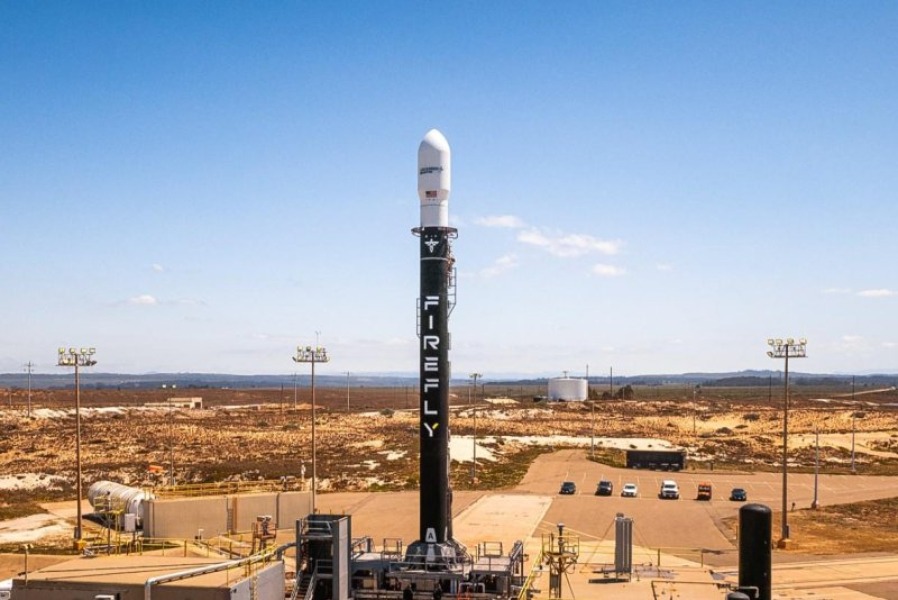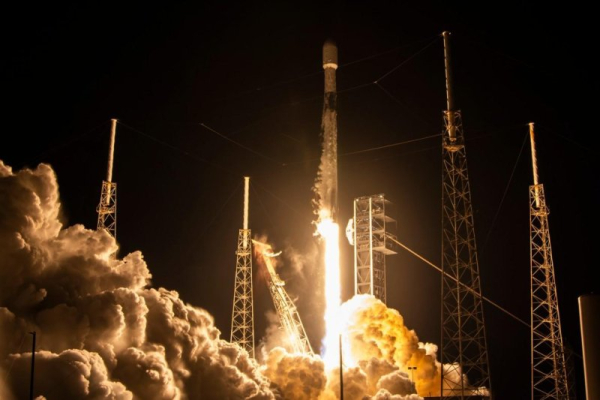
A Firefly Aerospace rocket launched from California has crashed into the Pacific Ocean north of Antarctica after failing to deliver a Lockheed Martin satellite into low Earth orbit.
It was the latest Alpha rocket failure for the privately held Texas-based company. Since its debut in September 2021, it has had two successful launches, two failures and two partial failures.
The mission was called “Mission in a Launch Vehicle.”
On a foggy Tuesday morning at 6:37 a.m. Pacific Time, the 96.7-foot-tall, two-stage Alpha rocket lifted off from the Space Force's Vandenburg Launch Complex SLC-2W and reached an altitude of 198.8 miles in space.
After separating from the lower stage, the upper stage engine continued to burn for more than six minutes, Ars Technica reports. After the stage shut down, Firefly reported that the rocket had reached orbit.
Thirteen minutes later, the rocket was scheduled to release its single payload.
At this point, Firefly ended the broadcast.
Alpha encountered a problem after stage separation. A nozzle came loose from the upper stage's single Lightning engine.
“Initial data showed that the Alpha upper stage had ascended to an altitude of 320 km,” the private company reported on X 90 minutes after liftoff. However, upon further analysis, the team found that the upper stage had not reached orbital velocity, and the stage and payload had now safely fallen into the Pacific Ocean in a cleared area north of Antarctica.”
Firefly Aerospace is conducting the investigation with Lockheed Martin, the Space Force and the Federal Aviation Administration.
The launch was delayed a day due to a “problem with ground support equipment.”
The mission was originally scheduled for mid-March but was delayed due to a lack of range at the launch pad at Vandenberg Space Force Base.
“Firefly appreciates the hard work that went into developing the payload and would like to thank our mission partners at Lockheed Martin for their continued support,” the company said in a statement. “Our team is actively working with customers and the FAA to investigate and determine the root cause of the anomaly.”
The mission was a technical demonstration of Lockheed Martin's LM 400, which was designed to test its capabilities in orbit with SmartSat software.
The Firefly rocket is designed to provide low-cost launches of medium-sized satellites, carrying payloads up to 2,866 pounds at a cost of $15 million per launch.
Alpha FLTA006 was the second Firefly mission launched for Lockheed Martin and the first of 25 planned missions over the next five years.
In September 2021, one of the four engines on the Alpha Reaver rocket's first stage unexpectedly shut down about 15 seconds after liftoff.
Then, in October 2022, the first Alpha mission was declared a success, although the rocket placed two satellites into a lower orbit than expected.
In September 2023, Alpha achieved its first success: its payload was launched into orbit for the US government's Space Systems Command.
In December 2023, an Alpha rocket placed a Lockheed Martin satellite into the wrong orbit after its second stage experienced an anomaly.
In July 2024, Alpha successfully launched eight CubeSats for NASA.
Firerfly Aerospace's next flight for Lockheed is scheduled for the second quarter of 2025.
Alpha is manufactured and tested at Firefly's Texas Rocket Ranch facility in Briggs, Texas, 50 miles north of Austin.
Firefly Aerospace's Blue Ghost successfully landed on the Moon on March 2. Blue Ghost carried instruments for 10 NASA research projects.
Launched on January 15 aboard a Falcon 9 rocket from Kennedy Space Center in Florida, Blue Ghost has traveled more than 2.8 million miles.
Firefly eventually plans to launch Alpha rockets from Florida.
Sourse: www.upi.com





